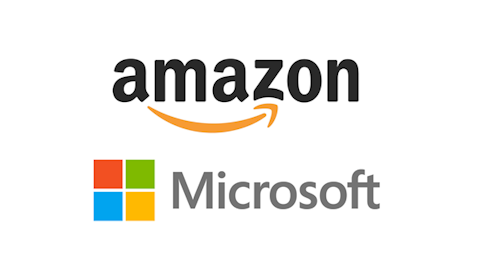Generation Investment Management, an investment management firm, released its “Global Equity Strategy” fourth quarter 2024 investor letter. A copy of the letter can be downloaded here. The firm is not a momentum investor and avoids companies with uncertain future earnings and high valuations. The firm invests for the long-term and remains curious about new companies. As of December 31, 2024, the Global Equity strategy had USD 25.7 billion in total assets under management. In addition, please check the fund’s top five holdings to know its best picks in 2024.
In its fourth quarter 2024 investor letter, Generation Global Equity Strategy emphasized stocks such as Microsoft Corporation (NASDAQ:MSFT). Microsoft Corporation (NASDAQ:MSFT) is a multinational software company that develops and supports software, services, devices, and solutions. The one-month return of Microsoft Corporation (NASDAQ:MSFT) was -5.14%, and its shares lost 12.32% of their value over the last 52 weeks. On April 3, 2025, Microsoft Corporation (NASDAQ:MSFT) stock closed at $373.11 per share with a market capitalization of $2.774 trillion.
Generation Global Equity Strategy stated the following regarding Microsoft Corporation (NASDAQ:MSFT) in its Q4 2024 investor letter:
“Microsoft Corporation (NASDAQ:MSFT), the world’s largest software company, has been in the portfolio for over a decade. We like the firm because its products align closely with society’s evolving needs. As the world digitises, demand for Microsoft’s tools will continue to grow. The company enjoys a wide economic moat – built on its unique market position, deep customer understanding and extensive global footprint.
Microsoft’s management team has a long-term vision. It makes bold investments in future growth, most recently in AI. We forecast that the IT intensity of the economy will double over the next 15 years. Microsoft is a rare company with USD 250 billion in revenues, projected to grow at 16% annually over the next five years.14 Earnings-per share could grow faster. Despite its near-term valuation appearing high, we believe Microsoft is well positioned to lead in the AI era, potentially doubling or tripling its market share. Additionally, we expect returns on capital (ROC) for its AI related investments to match historical levels, despite market scepticism.
There are risks. Demand for AI systems may not materialise as expected, and increasing pricing power among suppliers like Nvidia could pressure margins. Still, from our analysis we see substantial long-term value in this name.”

A development team working together to create the next version of Windows.
Microsoft Corporation (NASDAQ:MSFT) is in second position our list of 30 Most Popular Stocks Among Hedge Funds. As per our database, 317 hedge fund portfolios held Microsoft Corporation (NASDAQ:MSFT) at the end of the fourth quarter compared to 279 in the third quarter. In the fiscal second quarter of 2025, Microsoft Corporation (NASDAQ:MSFT) reported $69.6 billion in revenues, up 12% year-over-year. While we acknowledge the potential of Microsoft Corporation (NASDAQ:MSFT) as an investment, our conviction lies in the belief that AI stocks hold greater promise for delivering higher returns, and doing so within a shorter timeframe. If you are looking for an AI stock that is as promising as NVIDIA but that trades at less than 5 times its earnings, check out our report about the cheapest AI stock.
We covered Microsoft Corporation (NASDAQ:MSFT) in another article, where we shared the list of best innovative stocks to buy according to analysts. Artisan Global Opportunities Fund ended its investment campaign in Microsoft Corporation (NASDAQ:MSFT) during Q4 2024. In addition, please check out our hedge fund investor letters Q4 2024 page for more investor letters from hedge funds and other leading investors.
READ NEXT: Michael Burry Is Selling These Stocks and A New Dawn Is Coming to US Stocks.
Disclosure: None. This article is originally published at Insider Monkey.





